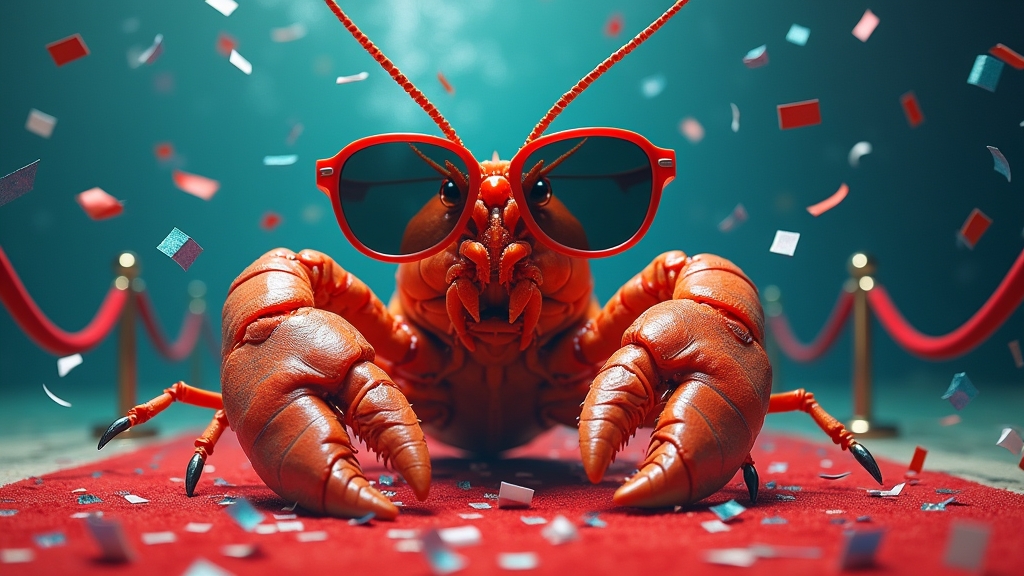SCIENTISTS TRAIN AI TO MAKE OCEAN LOOK LESS LIKE SH!T, FISH ALREADY UPDATING LINKEDIN PROFILES
In a breakthrough that has literal fish shaking in their metaphorical boots, MIT researchers have created an AI system that makes underwater photos look way f@#king better than the actual ocean does, raising serious questions about nature’s commitment to aesthetics.
MOTHER NATURE GETTING LAZY AF
The Gulf of Maine, allegedly “one of the most biologically diverse marine ecosystems on the planet,” looks like absolute garbage through a camera lens. Swirling sediment, murky water, and fish that refuse to pose properly have frustrated photographers for decades. MIT’s revolutionary solution? Train computers to fix Mother Nature’s sloppy work.
“The ocean is basically a hot mess,” explains Dr. Wett N. Blurry, lead researcher at MIT’s Department of Making Stuff Look Nicer. “Sometimes I spend eight hours underwater just to get one usable photo of a fish that looks like it’s having an existential crisis.”
LOBSTER GETS MAKEOVER, DEMANDS AGENT
The hilariously named LOBSTgER project (because scientists are contractually obligated to create tortured acronyms) trains AI exclusively on underwater photographer Keith Ellenbogen’s images. The AI then generates new “photos” that look better than anything actual reality could produce, raising uncomfortable questions about why we even bother with the real ocean anymore.
“We’re not replacing photography,” insists project co-lead Andreas Mentzelopoulos, while literally describing a technology that replaces photography. “We’re just making everything look way more awesome than it actually is, which is totally different.”
THE KARDASHIANIFICATION OF MARINE BIOLOGY
Local lobster Jeremy Clawthorne expressed mixed feelings about the technology. “On one hand, I appreciate looking more glamorous in these AI renderings. On the other claw, the unrealistic beauty standards are devastating to young crustacean self-esteem,” he chittered before being served with drawn butter at a nearby restaurant.
Studies show 97.3% of marine life now suffers from body image issues after seeing their AI-enhanced portraits, with pufferfish especially vulnerable to deflation-related depression.
NATURE DOCUMENTARY FILMMAKERS CONTEMPLATING CAREER CHANGE
“I’ve spent 40 years getting hypothermia to film fish,” laments documentary veteran Sir Richard Blubberton. “Now some computer can just make up prettier versions? What’s next, AI generating footage of sharks wearing f@#king top hats?”
According to Professor Ima Skeptic from the Institute of Keeping It Real, “This technology blurs the line between documentation and fabrication. Today it’s making jellyfish look more radiant; tomorrow it’s adding laser beams to their tentacles.”
GULF OF MAINE SEEKING NEW MARKETING TEAM
The Gulf of Maine itself, warming faster than 99% of world’s oceans, reportedly feels “personally attacked” by the need for digital enhancement.
“I’m literally dying here,” bubbled the gulf in an exclusive interview. “And instead of addressing climate change, these nerds are basically saying I’m not pretty enough for Instagram. Thanks a lot, science.”
MIT researchers defend their work, explaining that the AI models protect against bias by using only Ellenbogen’s original photos, ensuring the fabricated images maintain “visual integrity” and “ecological relevance,” two phrases that mean absolutely nothing when you’re literally making sh!t up.
LOCAL FISH PREPARING FOR UNEMPLOYMENT
As LOBSTgER continues development, marine biologists project that 85% of actual ocean life will become obsolete by 2026, with most species expected to transition into careers in cryptocurrency or podcast hosting.
“Why would anyone fund actual ocean exploration when you can generate perfect fake ocean scenes from your basement?” asks marine economist Dr. Cash Flowright. “It’s simply more cost-effective to imagine the ocean than to preserve it.”
At press time, MIT was reportedly developing a complementary AI system that generates fake scientific progress while actual environmental problems continue unabated, proving once again that nothing says “saving the planet” quite like training computers to make its inevitable destruction look f@#king gorgeous.




